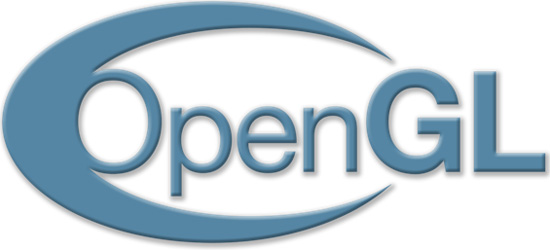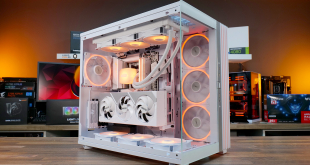Khronos Group, the organization responsible for multiple open-standard application programming interfaces (APIs), such as OpenCL, OpenGL and WebGL, this week announced intention to rebuild the OpenGL API from scratch. The purpose of this is to be able to compete against Microsoft’s DirectX 12, AMD’s Mantle and other possible APIs (e.g., Apple Metal) that allow low-level access to processing hardware and other benefits. Apparently, AMD wants to help with that.
Khronos called for participation in a project to define a future open-standard for high-efficiency access to graphics and compute on modern graphics processing units (GPUs). Key directions for the new ground-up design include explicit application control over GPU and CPU workloads for performance and predictability, a multithreading-friendly API with greatly reduced overhead, a common shader program intermediate language, and a strengthened ecosystem focus that includes rigorous conformance testing. Certain work on detailed proposals and designs are already underway, according to Khronos.
Rebuilding OpenGL API in order to reduce CPU overhead, improve support of microprocessor multi-threading and allow low-level access to GPU hardware is clearly something that is needed nowadays. Keeping in mind that AMD has already launched its Mantle API and Microsoft Corp. has announced its DirectX 12, which serve the same purposes, Khronos Group just follows the industrial trends. Intel has already demonstrated the benefits of DirectX 12 and they are pretty impressive.
It is noteworthy that AMD is actually ready to help the industry to create a new OpenGL, according to Richard Huddy, the gaming scientist at AMD, reports TechReport. According to Mr. Huddy, AMD has done a “great deal of work” with the Khronos Group on OpenGL Next. The company has provided the organization (which basically means, at least some of AMD’s rivals) access to the Mantle API, according to the gaming scientist at AMD.
“This is how we do it. If you want to take the same approach, go ahead,” said Mr. Huddy. “Khronos is free to take as many pages as it wants out of the Mantle playbook, and AMD will impose no restrictions, nor will it charge any licensing fees.”
According to the AMD representative, 75 developers are now working on Mantle-based titles, hence, the importance of the API is quite high.
But while the position of AMD’s Mantle is good, it does not mean that AMD could really influence the OpenGL Next. The new API from Khronos should support multiple graphics architectures – including those from AMD, ARM, Intel, Imagination, Nvidia and others – on a low-level, which is something hard to achieve (at least, it might take an unacceptable amount of time). Moreover, given the influence that Nvidia Corp., the arch-rival of AMD on the market of graphics adapters, has on Khronos Group, it is unlikely that the OpenGL Next API will actually be really Mantle-like.
Discuss on our Facebook page, HERE.
KitGuru Says: A good news is that all major graphics-related APIs seem to be heading in the same direction. A bad news is that eventually they could become too different (like it always happens), which would lead to a another API that would work exactly like DirectX does today.
 KitGuru KitGuru.net – Tech News | Hardware News | Hardware Reviews | IOS | Mobile | Gaming | Graphics Cards
KitGuru KitGuru.net – Tech News | Hardware News | Hardware Reviews | IOS | Mobile | Gaming | Graphics Cards



